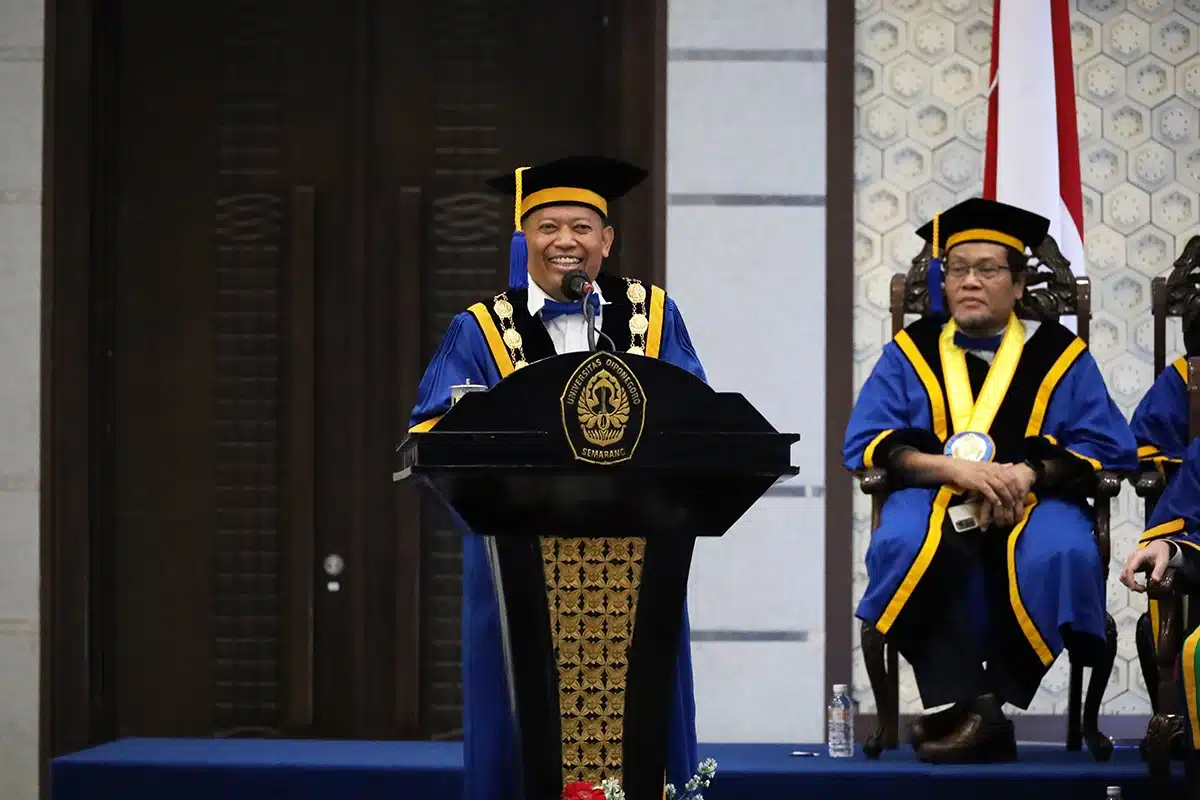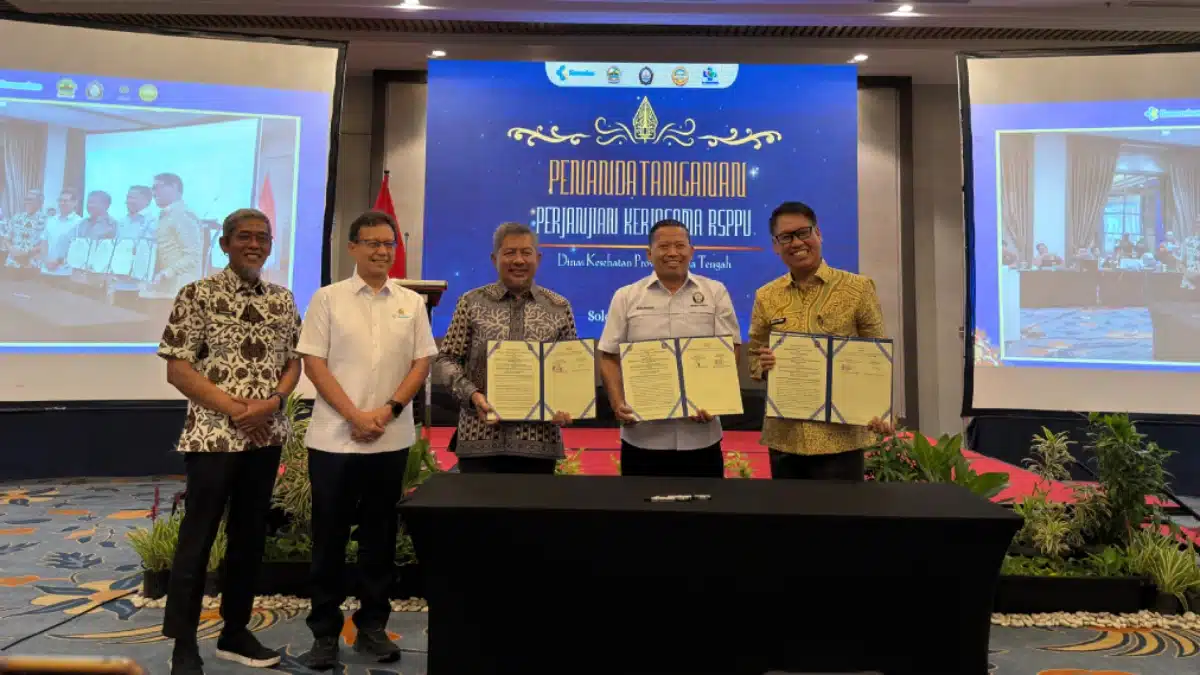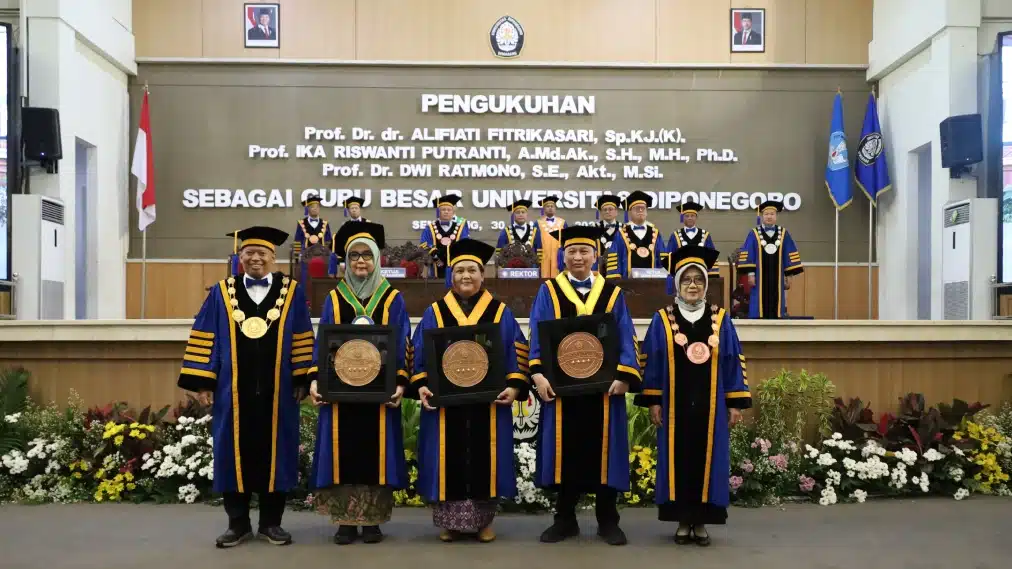“Implement the Community Service Program (KKN) as a form of worship. Share knowledge gained because knowledge will become a charity, spread love everywhere, and take care of each other’s safety. Always maintain the good name of the university, enjoy and take advantage of KKN to get new experiences on leadership, conflict management, coordination, working with applying a lot of knowledge, and innovating ideas,” said Undip Rector, Prof. Dr. Yos Johan Utama, S.H., M. Hum. in the deployment ceremony for KKN Team 1 students in 2022/2023, Tuesday (3/1) at the Widya Puraya Field, Undip Tembalang.
Furthermore, Prof. Yos said KKN students were Undip ambassadors who had to put forward courage, fairness, honesty and care. “May God give blessings, success, and safety to all of us,” he said.
Meanwhile, in his report, the Head of Community Service Lecture Service Center (P2KKN), Kurniawan Teguh Martono., S.T., M.T. said that the number of students to be deployed is 2,645 people. These students will carry out various activities, including multidisciplinary programs, scientific programs and social programs.
“The form of activities that will be carried out at the KKN locations for 45 days include providing education, especially health education related to the handling, prevention and dangers of drugs to families and communities, accelerating the reduction of stunting, mapping village potential such as tourism potential, MSMEs, natural disasters, and other activities that support the SDGs program,” he explained.
The KKN Team I students were located in 10 (ten) regencies in Central Java, including Brebes Regency, Tegal Regency, Pemalang Regency, Pekalongan Regency, Batang Regency, Boyolali Regency, Klaten Regency, Sukoharjo Regency, Sragen Regency and Wonogiri Regency. To get to the KKN location, they were facilitated by the university by using around 198 elf cars that took them to the destination village. KKN students also get insurance from JKK (Work Accident Insurance) and JKN (an insurance program in the form of BPJS Kesehatan).
“The KKN program is implemented with the principles of co-creation, co-financing, flexibility, sustainability and research based community. The principle of co-creation, means that KKN activities are prepared based on joint ideas between the university, regional government, work partners and the local community. The co-financing principle means that KKN funding is jointly supported by students, universities, local governments, work partners and the local community. The principle of flexibility means that the KKN activity program can be adapted to the situation and needs of the regional government, work partners and the community. The principle of sustainability means that the KKN activity program at a location can be programmed for more than one period according to the target; and finally the principle of research-based community service, meaning that the KKN activity program is carried out based on research,” concluded Teguh.
KKN is one of the courses with the main objective to provide experience of community service and empowerment to students. The KKN process has a special characteristic that combines theory with practice, so that it requires an ideal foundation that will philosophically provide a complete picture and understanding of what, how, and for what KKN is carried out. The implementation of KKN contains five aspects that are fundamental and philosophically insightful which cannot be separated from others, namely the integration of the implementation of the Tri Dharma of Higher Education; interdisciplinary and comprehensive approach; intersectoral knowledge; broad dimensions and pragmatism, as well as active community involvement. (Lin – Public Relations)









